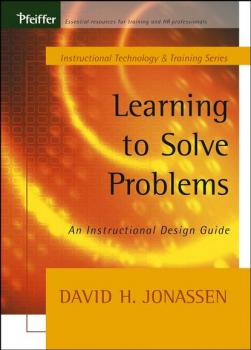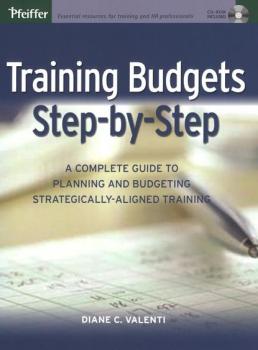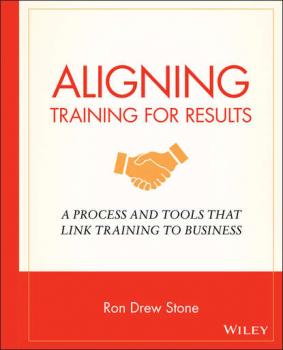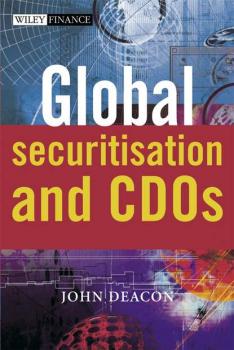Группа авторов
Список книг автора Группа авторовDiversity Mosaic Participant Workbook
Designed to help employees in all positions and areas of an organization develop knowledge, awareness, and skills for valuing diversity and creating a truly inclusive environment, this workbook will also help you understand your organization's diversity initiative and your role in supporting it. Upon completing the workshop, you will: Understand and value diversity. Appreciate why cultural competence is important for you as an individual. Discover why your organization is undertaking an effort to create true inclusion and to value diversity. Analyze your own perceptions, strengths, and developmental areas in becoming a champion of diversity. Learn skills to increase your level of cultural competence. Determine how to help eliminate structural inequality to create a truly inclusive organization. Create a personal diversity action plan. This Diversity Mosaic Participant Workbook includes everything each employee needs to know to increase awareness and make the most of the diversity initiative: 360-degree assessment, instructions for assessors content, template letter, perforated observer forms, and scoring sheet.
Beyond Transfer of Training
Did you know that an average of only 10%-20% of training resulted in changing or enhancing an employee?s performance on the job. So, why train? Picking up where her first book, the landmark Transfer of Training, left off (and retaining some of the most salient sections and strategies), this completely updated take on the topic shows trainers and performance professionals how to: Gain and maintain effective performance in complex systems. Find and engage clients and stakeholders in transfer of learning efforts. Support transfer of learning in E-environments. Evaluate the success transfer of learning interventions. Order your copy of this essential guide today!
Learning to Solve Problems
Learning to Solve Problems is a much-needed book that describes models for designing interactive learning environments to support how to learn and solve different kinds of problems. Using a research-based approach, author David H. Jonassen?a recognized expert in the field?shows how to design instruction to support three kinds of problems: story problems, troubleshooting, and case and policy analysis problems. Filled with models and job aids, this book describes different approaches for representing problems to learners and includes information about technology-based tools that can help learners mentally represent problems for themselves. Jonassen also explores methods for associating different solutions to problems and discusses various processes for reflecting on the problem solving process. Learning to Solve Problems also includes three methods for assessing problem-solving skills?performance assessment, component skills; and argumentation.
Training Budgets Step-by-Step
Training Budgets Step-by-Step is a useful guide that walks you through each phase of the process, so that you will have the information you need to develop a successful training plan and accurate budget that will get results for your organization. Training Budgets Step-by-Step gives you Clear-cut instructions on how to perform each step An illustrative case study that helps define every phase of the process Blank templates that you can tailor to your organization Written by training expert Diane Valenti, the book shows you everything from how to conduct the data gathering process to help determine the types of training to create to how to present a completed budget¾one that aligns strategically with your organization's goals. Every step of the way the author provides a wealth of templates, worksheets, lists of questions to ask, action plans, flow charts, interview summary sheets, and other helpful job aids. Training Budgets Step-by-Step also includes a CD-ROM that contains the book's worksheets and templates that can be easily reproduced and customized.
Aligning Training for Results
What makes some training programs successful while others produce disappointing results? The answer, says Ron Stone, lies in the processes trainers employ to determine needs, design and develop programs, deliver the training, and partner to get business results. It is time to reexamine these processes, says the author, and bring them into the twenty-first century. In Aligning Training for Results Stone provides a potent, comprehensive, and versatile resource to help guide trainers through assessing, designing, and delivering training solutions that achieve real and measurable results. Note: CD-ROM/DVD and other supplementary materials are not included as part of eBook file.
Self Managed Superannuation Funds
RE: Self Managed Superannuation Funds: A Survival Guide Self managed superannuation funds (SMSFs) are the fastestgrowing sector of the superannuation industry. It’s no wonder, given the almost unlimited investment options available with SMSFs – including investing in property, unlisted managed funds and collectables. So, is it time you joined the increasing number of Australians taking control of their fi nancial future with an SMSF? Self Managed Superannuation Funds: A Survival Guide will help you manage one of the most important fi nancial assets you’ll ever own. Topics covered include: determining if an SMSF is for you selecting your own investments setting up your super fund managing the paperwork understanding trustees’ duties complying with legislation implementing tax-saving strategies.
Global Securitisation and CDOs
This is an essential book for any practitioner, researcher or student of securitisation – concise and accurate coverage of the key aspects of securitisation on all the main and secondary markets of the world. ?Alexander Batchvarov, Managing Director, International Structured Product Strategy, Merrill Lynch, London. «John Deacon's original book became the leading textbook for those genuinely interested in gaining a profound and detailed understanding of the arcane world of securitisation. The new, updated version confirms John's status as the top writer in this sector. Securitisation has moved on, becoming ever more complex in both its detail and its variety, but John's book never fails to deal with all the intellectual challenges posed, in a clear, logical and comprehensive fashion. A must for all practitioners- ? I thoroughly enjoyed it.» ?Robert Palache, Managing Director, Head of European Infrastructure Finance and Corporate Securitisation, Barclays Capi tal «Deacon?s book is an unparalleled treatise on all aspects of asset securitisation and CDOs and is ideal for use by both experienced market practitioners and by those new to the seemingly ever-expanding world of securitisation. The book comprehensively outlines the various structures encountered, ranging from true sale and future flow financings to synthetics and whole business, addressing not only the framework of the structures but also the regulatory and accounting implications. A must have reference book.» ?David Newby, Executive Director, ABN AMRO BANK N.V., Head of UK and Irish Securitisation, Head of European Commercial Real Estate Securitisation Synthetic credit derivatives technology, CDOs, the covered bond market, the mortgage-backed market and M&A financing have all come together to make securitization the fastest growing and most flexible area of the global credit markets. This authoritative work looks at the recent synthetic structures and credit derivatives used in CDOs and at the new Basel Capital Accord and addresses the framework of these structures as well as the regulatory and accounting implications. You'll find truly global insights, coverage of both the financial and legal aspects of securitization, and a glossary of market and legal terminology. Order your copy of this comprehensive update on the development of securitization today!
Credit Derivatives Pricing Models
The credit derivatives market is booming and, for the first time, expanding into the banking sector which previously has had very little exposure to quantitative modeling. This phenomenon has forced a large number of professionals to confront this issue for the first time. Credit Derivatives Pricing Models provides an extremely comprehensive overview of the most current areas in credit risk modeling as applied to the pricing of credit derivatives. As one of the first books to uniquely focus on pricing, this title is also an excellent complement to other books on the application of credit derivatives. Based on proven techniques that have been tested time and again, this comprehensive resource provides readers with the knowledge and guidance to effectively use credit derivatives pricing models. Filled with relevant examples that are applied to real-world pricing problems, Credit Derivatives Pricing Models paves a clear path for a better understanding of this complex issue. Dr. Philipp J. Schönbucher is a professor at the Swiss Federal Institute of Technology (ETH), Zurich, and has degrees in mathematics from Oxford University and a PhD in economics from Bonn University. He has taught various training courses organized by ICM and CIFT, and lectured at risk conferences for practitioners on credit derivatives pricing, credit risk modeling, and implementation.
Implementing Value at Risk
Implementing Value at Risk Philip Best Value at Risk (VAR) is an estimate of the potential loss on a trading or investment portfolio. Its use has swept the banking world and is now accepted as an essential tool in any risk manager's briefcase. Perhaps the greatest strength of VAR is that it can cope with virtually all financial products, from simple securities through to complex exotic derivatives. This allows the risk taken, across diverse trading activities, to be compared. This said, VAR is no panacea. It is as critical to understand when the use of VAR is inappropriate as it is to understand the value VAR can add to a bank's understanding and control of its risks. This book aims to explain how VAR can be used as an integral part of a risk and business management framework, rather than as a stand-alone tool. The objectives of this book are to explain: What VAR is – and isn't! How to calculate VAR – the three main methods Why stress testing is needed to complement VAR How to make stress testing effective How to use VAR and stress testing to manage risk How to use VAR to improve a bank's performance VAR as a regulatory measure of risk and capital Risk management practitioners, general bank managers, consultants and students of finance and risk management will find this book, and the software package included, an invaluable addition to their library. Finance/Investment
Wall Street on Trial
The politics of business have become the business of politics. Across the world the lesson is clear: just as too much governmental interference leads to dysfunctional economies, left to its own devices the market is incapable of adequate self-regulation. The corporate malfeasance crisis in the United States has transformed global perceptions about the efficacy of regulatory structures in combating corrupt practices in private and public sectors. The design of effective corporate governance structures depends not just on internal factors but also on the inter-relationship between various actors that constitute wider governance: politicians, lobbyists, corporations and regulators. A Corrupted State: Wall Street on Trial breaks new ground by deconstructing the systemic flaws inherent in the model itself. It reveals that the 'rotten apple' theory, positing the problems in corporate America as merely the result of deviancy by an individual or a single firm, is an intellectual deceit not supported by the facts.









